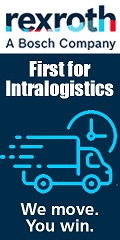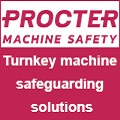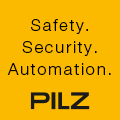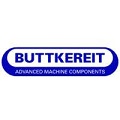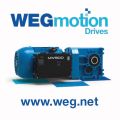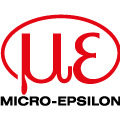
Posted to News on 4th Sep 2012, 10:36
Specialist clean room assembly facilities explained
This article explains what is needed for specialist assembly facilities requiring high standards of cleanliness.
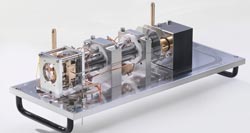
A laser-based targeting system in a military aircraft and a mass spectrometer for food safety monitoring are both applications where contamination in the production process could potentially cause an operational failure. Systems and instruments such as these contain complex clean assemblies, often with expensive components having specific handling and process requirements. Gears with specialist coatings, for example, demand high standards of cleanliness and surface preparation in order to ensure adhesion. Ion transport systems operating in a high vacuum, such as those found in the mass spectrometer, have their own cleanliness requirements to ensure effective vacuum performance and electrical charging.
High levels of cleanliness and robust process control are often essential requirements in the scientific instrument, semiconductor, defence and photonics industries, where the effects of contaminants can lead to equipment malfunction and performance degradation. While considerable variety exists in providing 'clean' assemblies, common practices and techniques link the diverse range of end products.
The defence industry refers to Foreign Object Debris, the semiconductor industry refers to Foreign Body Analysis; slightly different terminology, but a shared strategic issue. Cleanliness means different things to different people in different industries, there being no universal definition. The management of cleanliness, however, does typically require the same disciplines across all industries, even if not the same 'recipes'. Repeating threads include component cleaning processes, handling methods, environmental conditioning (eg cleanroom certification), together with related parameters such as temperature and humidity control. These drive operational procedures and disciplines, such as clothing requirements, particle counting, process monitoring and control (eg cleaning tanks), equipment calibration, and training and mentoring. One set of operational procedures and disciplines, however, cannot simply be applied from one customer to the next. Close customer liaison from the start of any project is critical to ensuring the most appropriate production tools, methods, quality and process controls are put in place.
Cleaner by design
Choices start at the design stage with the selection of appropriate materials, surface finishes, coatings and lubrication, the management of interacting surfaces and particulate generation, thermal management and, in the case of high-vacuum assemblies, venting strategies. The manufacturing and assembly processes begin with options for different cleaning techniques. Solvent cleaning can be used to remove traces of oil-based contaminants, and additional levels of cleanliness can be achieved using aqueous or acid cleaning. Plasma cleaning is used to remove microscopic organic contaminants, and elevated-temperature vacuum baking to outgas material surfaces.
The certification of the cleanroom in which the assembly activity is carried out is also a key factor driven by the application. Reliance has a number of facilities to suit different applications. Subsystems for scientific instruments, for example, are produced in a laminar flow cleanroom, certified to ISO 14644-1 Class 6 (Fed Std 209E Class 1000). Assemblies containing optical devices, such as those used in laser products for the aerospace industry, are produced in a dedicated opto-mechanical cleanroom, using higher-specification clean air flow benches certified to ISO 14644-1 Class 4 (Fed Std 209E Class 10), together with specialist non-contact handling and inspection equipment. In certain cases project-specific facilities have to be built to meet individual contract requirements. Special adhesives and coatings used in some industries can require fume extraction hoods or the development of a completely separate project facility.
Quality management
It is important to demonstrate as far as possible that components and assemblies which are to be used in a clean or high-vacuum environment have been built to specification. Diligent quality, process control and training are essential. Indeed, in the space industry, where prolonged unmanned satellite operation is required, the supplier needs to be prepared to allow all aspects of manufacture to be audited and all stages documented and signed.
Test activity is an essential mechanism for demonstrating that the assemblies work in line with the customer's specification. Functional testing might include leak testing, background contamination analysis, laser-based testing, and electrical conditioning. A combination of standard test equipment, custom test equipment and test versions of the customer's instrument may be considered; where possible, tests need to replicate operation as if it were in the parent machine. Having the appropriate depth of technical experience to be able to undertake design analysis and verification can help validate the performance of the assembly and resolve performance issues.
Since the impact of contaminants and the measures needed to protect against them are so tightly defined by the design of each product, the application it serves and the environment in which it works, cleanliness is typically specified on a case-by-case basis. Scientific instrument companies, satellite manufacturers, the semiconductor and defence industries, all facing demanding requirements in terms of yield, performance, accuracy and reliability, know from their own experience the criteria for assessing cleanliness - and, importantly, what operational processes are acceptable and unacceptable. The challenge for their supply chain is to provide a flexible, customised clean assembly service, with the necessary breadth of facilities, appropriate depth of engineering expertise, and effective quality and process control.
Reliance Precision Ltd is a specialist supplier of tested subassemblies to major equipment manufacturers in the scientific instrument, semiconductor, defence and photonics industries. Further information about the company and its cleanroom assembly capabilities can be found at www.reliance.co.uk/en/Clean-and-High-Vacuum-Assembly.
Rowley Mills, Penistone Road
Lepton
HD8 0LE
UNITED KINGDOM
+44 (0)1484 601002



